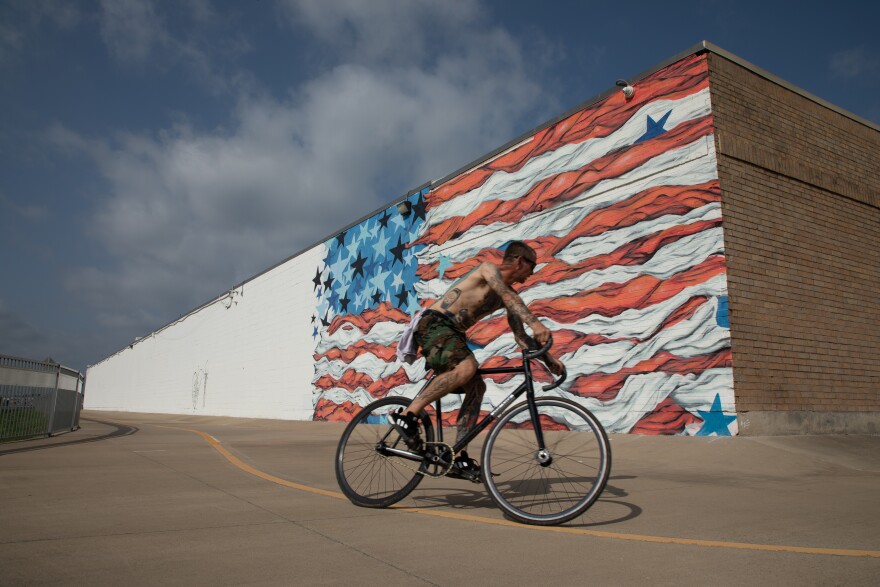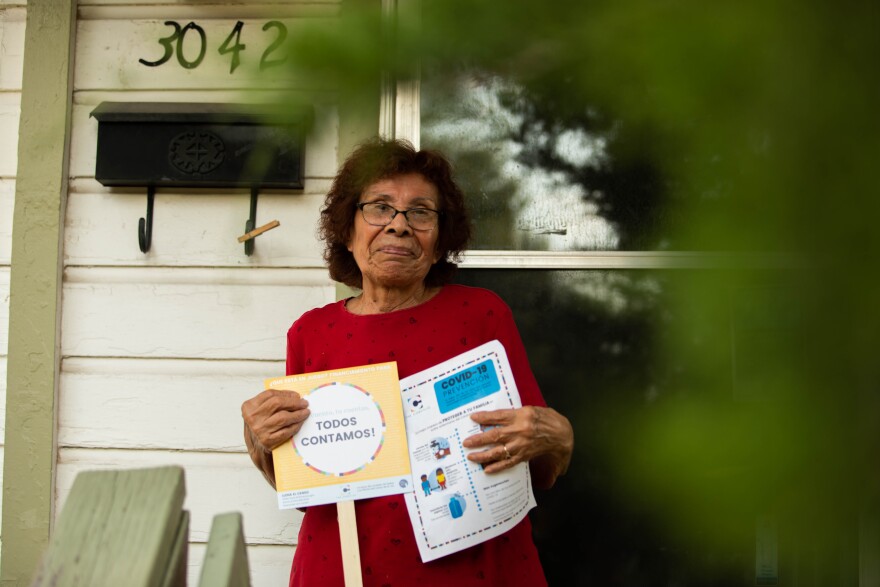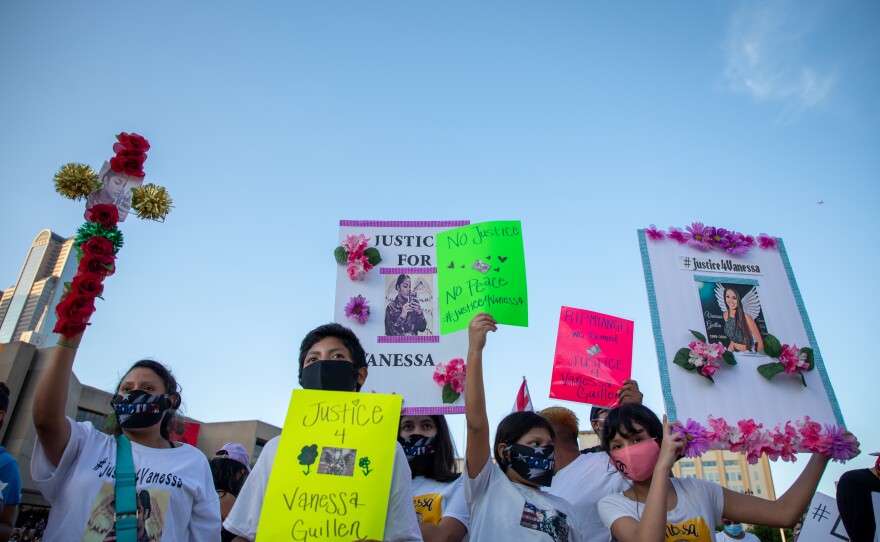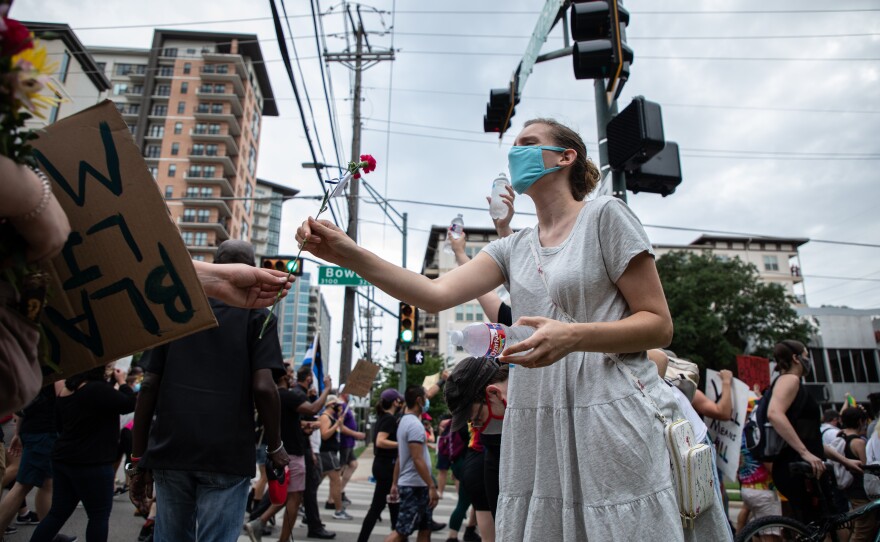
On the first week of June, thousands of people across Texas protested police killings of black Americans — sparked by the death of George Floyd in Minneapolis. While some violent confrontations broke out between police and demonstrators, the vast majority of Texans participated peacefully.
During President Donald Trump's visit to Dallas in June, protesters and supporters alike lined the street where he was expected to host his first roundtable fundraiser since the pandemic started.
While protesters were demanding an end to police brutality and defunding police departments across the country, President Donald Trump rejected those calls.
“We’ll take care of our police," Trump said. "We’re going to make sure our police are well-trained and have the best equipment.”

From protests against police brutality to virtual pride parades, Black Americans were making their voices heard. As the July Fourth weekend arrived — and with it, thoughts of patriotism and freedom — many began reflecting on what it means to be American.
Hundreds of Dallasites laid out flowers and candles on July 6 outside city hall in honor of 20 year-old soldier Vanessa Guillén. The vigil started with people in lowriders roaring their cars, and a Mariachi group performing traditional Mexican funeral songs.
Guillén went missing from Fort Hood on April 22, and her body was found two months later. Her brutal murder has led to vigils across Texas and calls for change.

After Guillén's disappearance, many people began to speak out on social media about their experiences with sexual harassment and violence in the military.

Meanwhile, one of the parking lots of the brand new Globe Life Field in Arlington, was filled with thousands of cars on the morning of July 8. They were part of a massive grocery giveaway from the Tarrant Area Food Bank.
The cars started lining up almost an hour before the food distribution was slated to start, and by 8 a.m., hundreds and hundreds of cars stretched across several lanes, blanketing the massive parking lot.

When the deadline to fill out the census was cut short from Oct. 31 to Sept. 30, a local non-profit decided to doubledown on its census outreach. Their first stop was Bachman Lake, one of the Dallas' most undercounted communities.

"This area is hard to count. There's technology issues. Many of them count on someone else to help them navigate websites. Also, many of them don't speak English," said Florencia Velasco Fortner, the president of The Concilio.

As parents began gearing up for another year of virtual learning, data showed that 42% of Dallas households lacked fixed internet access.
School officials and education leaders worry that the current inequities in broadband access will widen gaps in academic performance that existed before the COVID-19 pandemic — disproportionately impacting the poor and students of color.

People all over North Texas headed out to the polls on October 13 to vote ahead of the presidential election. About 6 million Texans voted before Election Day, reaching more than 65% of the total turnout four years ago, a record pace.

Now, Dallas hospitals are filled with hope, as many first-responders and healthcare workers get the first round of vaccines on Dec. 15.
“This vaccine has killed zero people," Parkland’s Chief Medical Officer Joseph Chang, said. "But the coronavirus is killing people everyday. Do it. Take the vaccine. Do it for the nurses and doctors who’ve held hands of people passing away.”
Despite the challenges, Dallasites came together in unprecedented ways and adapted to a world of masks, becoming socially distant, and taking care of one another.
Keren Carrión is a corps member with Report For America, a national service program that places journalists into local newsrooms. Got a tip? Email Keren at Kcarrion@kera.org. You can follow Keren on Twitter @kerencarrion8.














